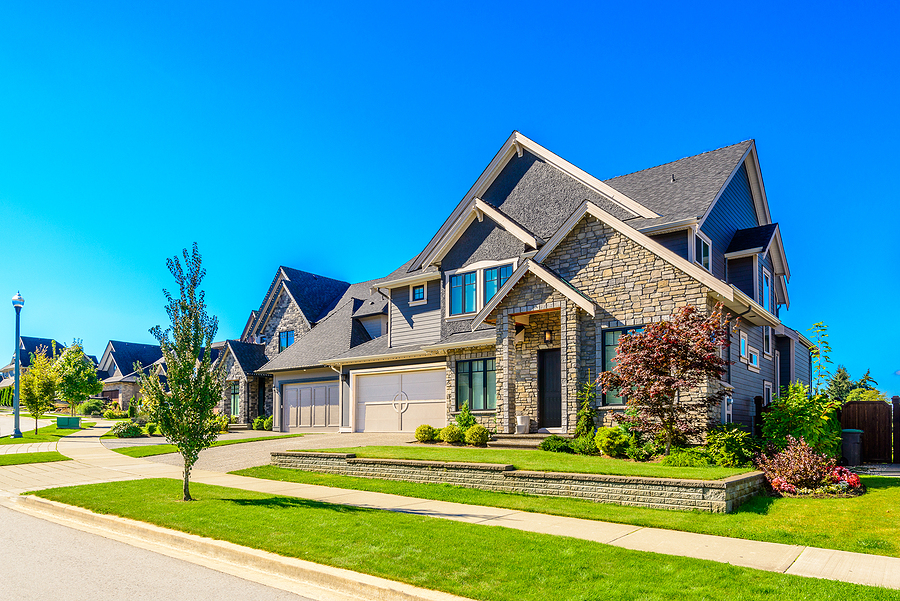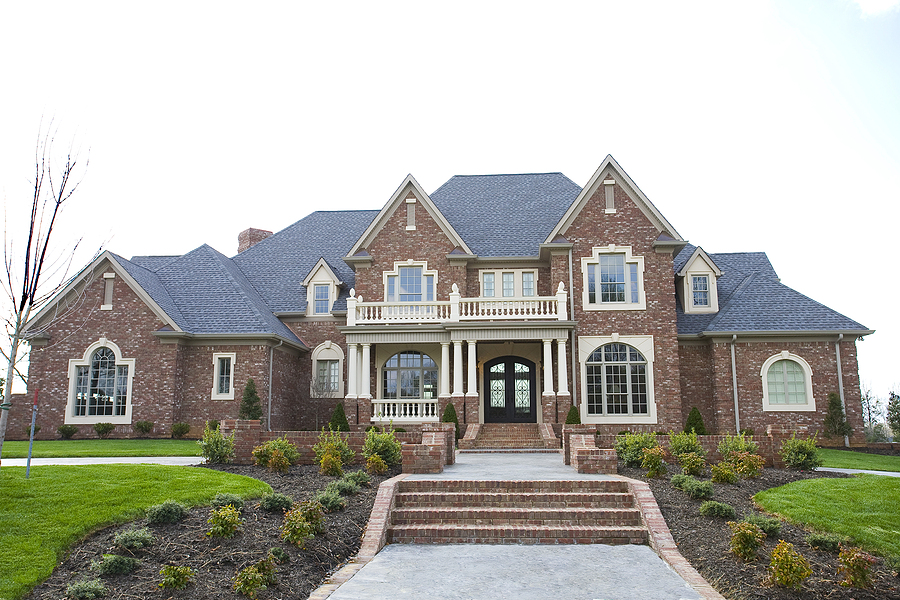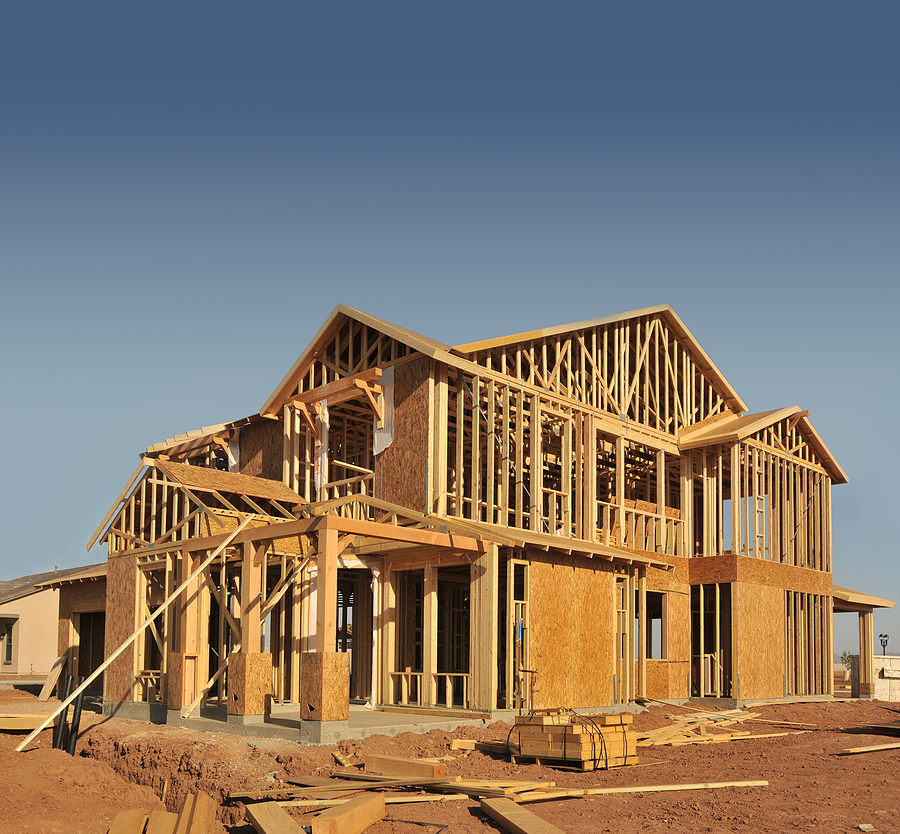Written by: Sam Isham
The length of time required to finish a new home construction can be anything from 6 months to 2 years, depending on a variety of factors. So the short answer to the question, how long does it take to build a house, is “It depends.”
Indeed, the construction time for a custom home depends on the circumstances, design, and magnitude of the floor plan and blueprints. The climate and even the location you reside in can also play a role. Add to that any possible supply chain issues and six to seven months can quickly stretch to months or even years more.
While the prospect of owning a brand new home constructed to your specified standards seems appealing in this hot market, it’s crucial to understand what you’ll be dealing with and how long you might have to wait to move in.
Knowing all of the elements and the basic timetable upfront will aid in determining whether or not a new home development is good for you. This article will guide you through what to expect.
Table of Contents
On Average, How Long Does it Take to Build a House?
As per a 2019 U.S. Census Bureau document, it tends to take an average of seven months to construct a building from beginning to end.
However, you may need to budget for time for an architect to draft designs (1–4 months). Then add another month to have your construction approved before you start digging. When you add everything together, you’re talking about a one-year investment.
In fact, based on how and where you reside and the technique you employ to construct your residence, you may be able to skip some of the processes. So, let’s look at how long it would take to build a house based on the type of property and the area.
| Home Type | Average Build Time (2019) |
|---|---|
| Owner-built | 12 months |
| Contractor-built | 9 months |
| Built-for-sale | 6 months |
The finalizing of blueprints and securing permissions, as well as the construction of a project of the home and the final inspection, all fall within this period. While these figures appear to be deceptively low, keep in mind that they mostly relate to homes in new apartment buildings, where you may choose between a variety of architectural drawings and enhancement plans.
If you want to create a totally customized house, you’ll have to budget extra plans to meet with a design professional or contractor and sketch out blueprints, acquire the required finance and licenses, finalize all architectural selections, and leave room for unavoidable setbacks and complications.
With a professional, generally speaking, a normal custom-built residence will take almost one year from beginning to end. On the other hand, a a totally custom-designed home may take several years.
Why is a Custom Dream Home Build Slower?
Customized constructions are when you employ (or function as) a construction manager to execute the plan exactly like you want it, presuming you already have the patch of property you wants to develop on. Owner-built and contractor-built developments are both custom constructions in the sense that you (the landowners) are in charge.
Because construction companies earn their livelihood building infrastructure, it’s understandable that contractor-built initiatives require less average time than owner-built ventures.
This is especially so if you, the owner, have hardly any expertise in supervising the construction (functioning as the general contractor) of a new house. In fact, with owner built homes where if you are inexperienced and act as the general contractor, things can quickly get and cost and time frame can escalate uncontrollably.
That’s why we advocate working with a custom builder, such as SLiJR, the family-oriented company I founded and lead in North Carolina. A experienced custom builders like SLiJR (or any other reputable company you choose to work with) is better positioned to to ensure that your vision can be met specifically. Furthermore, choosing custom house alternatives allows you to build on your own property rather than in congested development settings, as huge construction corporations do to maximize profit — the reason they also use low-cost materials.
Featured builder:
Why is the Construction Process of Non-Custom Homes Quicker?
Non-custom development, such as pre-designed and constructed homes, is the quickest to complete. A built-for-sale home (also known as a stretch, prospective, or manufactured home) is one that is constructed with the intention of selling but with no customer in mind at the time of construction.
Constructed-for-sale buildings have the shortest delivery time since the contractor has previously completed a gazillion houses such as yours using a cookie-cutter conceptual design and has had plenty of time to iron out the problems that invariably creep up in the building process.
Furthermore, instead of both the contractor and a possibly hesitant consumer, the majority of construction guidance often springs from only the contractor.
The Journey of the Home-Building Process in Stages
Let’s take a tour of what goes into construction, if you’re puzzled as to why the building process takes far too long for a new house. Following building drawings and approval and obtaining permits, the following basic steps are common:
1. Preparing the building site and ground
(excavation and concrete)
2. Building
(the roof and the house’s “bones”)
3. Finished exteriors
(siding, windows, doorways, and garage)
4. Deployment of critical services
(HVAC, plumbing and electricity)
5. Finished interiors
(drywall, flooring, cabinets, countertops, and painting)
Of course, the average time for each phase differs from one to the next. However, in practice, the beginning phases of adding system integration and finishing the interiors and exteriors move more quickly than the final phases. These final phases need a wide range of materials.
Factors Affecting the Timeline of the Home construction process
How long does it take to build a house? What can be some causes for delay? Many!
Several cause typical can cause delays in the construction of new homes. Some of these may be prevented or lessened with careful preparation, while others will still have to be dealt with when they arise.
Authorizations and Permissions
Of course obtaining permits is a must before the actual construction project can begin. The method of getting the proper permissions and licenses might take a reasonable or or long time based on how and where you reside. Th construction style may also play a role here.
Indeed, disruptions at this step are usual, whether owing to an overburdened examiner, constraints determined by government rules, or just an abundance of documentation to be completed.
Of course, delays here will add to the total construction time of your custom home building project. Anticipate probable difficulties in this location and add time to your schedule to accommodate them.
Environment
The location of your property will also have an impact on the schedule. Sure the vistas from your hill-top house location looks spectacular. And you have the proper permits. But remember that all of the tools and components required to build your luxury home there will have to be transported up that very same steep. Not surprising, this might cause complications and inconveniences.
Cleaning and flattening the home site in advance for the groundwork might lead to delays throughout the initial stage when you build a house, due to the elimination of trees, boulders, and other unexpected objects.
Location
The schedule varies by location, with buildings in the north lasting considerably longer than those in the south. This is most likely owing to the fact that the building must operate around the possibility of cooler temperatures.
Furthermore, construction in urban and industrialized regions will be smoother than in rural areas or new projects that do not have access to amenities.
Weather conditions
The building might also be hampered by inclement weather. Downpours can create floods, destroy materials, and make gravel routes unusable for machinery, in addition to interrupting operations.
Extreme temperatures, such as frigid temperatures and strong winds might sometimes cause certain construction phases to be postponed and prevent a custom built homes from completion in a timely manner.
Healing the groundwork, drywall construction, staining, tiling, and drainage system construction, along with other tasks, cannot be completed during severe weather. Hence, the general contractors and construction crew may not be able to avoid delays of a few months or more.
It should therefore make sense that such occurrences cannot be predicted, so it is always helpful to be conscious of the likelihood of disruptions due to weather.
Subcontractors and laborers Availability
Private contractors are frequently inaccessible on deadline during the peak construction season of the year, summer, due to the huge amount of work requiring their consideration.
Many important building processes, such as substructure and roofing, as well as electrical works, need the help of qualified subcontractors with expertise in those industries. The building may need to be momentarily postponed until they are ready to finalize the indispensable job.
Your House’s Design and Scale
Bigger homes, as well as those with more elaborate architecture, are bound to take way more time. Leading to significant complications that arise all across the process of developing a blueprint that has never been created before, developing a completely unique home may face unanticipated setbacks.
If you choose a contractor’s layout, they will have built nearly identical residences in the past and will be more knowledgeable of, and able to prepare for, any possible pitfalls.
Homes that need specialist resources may take longer than expected if such resources are in limited supply or missing at the time they are required.
Indecisive buyer
An undecided buyer is one of the most common reasons for delays in a new building. Switching concepts midway through a project, modifying substance selections, or delaying until the last moment to make creative decisions can cause construction to be delayed or even halted.
Some materials take weeks to arrive after you purchase them, so deciding on anything you want when it’s time to install them will entail pausing the building while you stand in line for them to come.
5 Other FAQs and Tidbits About the Building Process of Your New construction Dream Home
1. How much does it cost to build a house?
The cost of building a home is influenced by the floor plan, size and complexity of the home, as well as where it’s being built.
Although the average cost of custom homes is about $285,000, most homeowners spend between $120,000 and $450,000 to build their homes. Don’t forget that that you also need money for land and site preparation.
2. How long until a house is livable?
The building time of single family homes and the major systems can take anywhere from six months to two years or more, depending on the size and complexity of the home. Only then can you happily conduct the final walkthrough and agree your personally supervised or contractor built home is move-in ready!
3. How big do houses get?
The size of a home often relates to the number of occupants and the materials used in construction. An average American-sized house is around 2,000 square feet. . Larger homes can be up to 5,000 square feet and smaller homes are typically 1,000 square feet.
4. What is the average cost of moving into a new house?
The cost of moving into a new home varies depending on several factors like location, size and construction materials used. In general, the cost of moving into a new home averages around $11,000.
5. How long do houses last?
The amount of time a house lasts can depend on the quality and maintenance it is given. Houses that are well-maintained will last as long as 250 years, while poorly built homes in disrepair can be demolished after 50 years or less.
Final verdict on How long to Build a House
The U.S. Census Bureau has revealed that the average time to build a house is seven months.
However, the construction time for any particular custom home depends on several factors—such as design, the circumstances, and magnitude of the floor plan and blueprints. Beyond these things, other factors like the location you reside in and the climate also play an important role in determining how long it takes for the entire project and you can finally move into the completed home of your dreams and vision.
Indeed, there are several advantages to building your own house, but it may not be the best option for everyone owing to the potential time consuming process and even possible financial constraints. To evaluate if this is the path you wish to pursue, you must honestly assess your ambitions and constraints.
Again, there is no denying that building a new home can be a wonderful idea. However, to ensure the construction process is as smooth as possible, given everything that can go wrong or cause delay, it makes sense to use experts — they can be your friends.
For instance, a good general contractor or builder understands the different phases of the construction process, from initial site work to the final step. They should have a line of open communication and present you with the customization options, interior and exterior finishes, or whether to consider a spec home instead (You can read here about spec homes).
When you work with the appropriate professionals and expert planning is done, the build time for your dream home project becomes a more objective calculation. And the building process, from pre construction through all the major systems of your new home
If you are building in North Carolina, SliJR Construction can help you with all these. We will assist you to examine your alternatives and design a strategy to help you reach your objectives. Contact us here to get started today!





